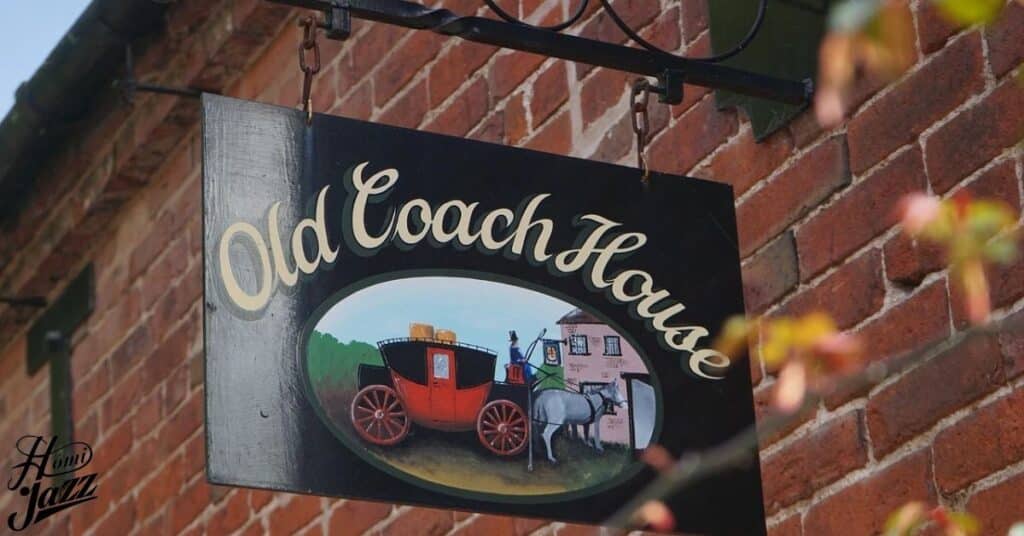A coach home, also known as a carriage house or secondary suite, is a unique dwelling situated on the same property as a main residence. Originating in the 18th century as outbuildings for horse-drawn carriages, coachhouses have evolved into modern living spaces.
What if your home came with its hidden gem. Enter the world of coach homes, where history meets modern convenience. Discover the allure of these unique dwellings, steeped in tradition yet perfectly suited for contemporary living.
A coach home, also known as a carriage house, is a compact dwelling situated on the same property as a main residence. Originally built to house horse-drawn carriages, these charming structures now offer versatile living spaces with unique historical charm.
Understanding Coach Houses

Coach houses, also called carriage houses, boast a rich history dating back to the 18th century. Originally constructed to shelter horse-drawn carriages, these buildings served as essential outbuildings for affluent homeowners. Over time, their purpose evolved, with many coach houses now transforming into cozy living spaces above garages or carports.
Today, coach houses offer unique residential options, blending historical charm with modern functionality. These compact dwellings typically feature living quarters above parking spaces, making them ideal for homeowners seeking additional rental income or versatile living arrangements. Despite their smaller footprint, coach houses continue to hold appeal to those drawn to their quaint architecture and potential for creative adaptation.
Read this blog:http://A LOOK INSIDE ELON MUSK’S TINY $50,000 HOUSE
Benefits of Coach Houses
Coach houses offer various benefits, including affordability compared to traditional homes. With lower maintenance costs and often reduced council tax rates, they present a budget-friendly housing option. Additionally, their potential for generating rental income from both living spaces and parking areas adds to their financial appeal.
Privacy is another advantage of coach houses, as they are typically detached or semi-detached units. This separation from neighboring properties enhances privacy and reduces noise disturbances. Furthermore, their entrance and parking spaces contribute to a sense of independence and security for residents.
Considerations Before Buying or Selling

Before buying or selling a coach house, it’s crucial to consider its location carefully. Proximity to amenities, schools, and transportation can significantly impact its value and convenience. Additionally, assessing the neighborhood for safety, noise levels, and overall appeal is essential for making an informed decision.
Examining the condition of the coach house is vital before making any transactions. Look for signs of damage, wear, or structural issues that may require repair or renovation. Understanding the legal aspects, including ownership agreements, leasehold terms, and any planning permissions, is also crucial to ensure a smooth buying or selling process.
Comparison with Other Property Types
When comparing coach houses with other property types, one notable distinction is their unique history and design, stemming from their origins as carriage houses. Unlike traditional homes, coach houses often feature living spaces situated above garages or carports, providing a distinctive layout.
Additionally, coach houses offer certain advantages over other property types, such as affordability and privacy. Their typically smaller size and reduced land requirements can result in lower purchase prices and maintenance costs compared to larger homes. Moreover, their detached or semi-detached nature provides increased privacy and independence for residents.
Read this also:http://10 CELEBRITIES THAT LIVE IN MIAMI, FLORIDA IN 2024
Regulations and Zoning

Regulations and zoning play a crucial role in the development and usage of coach houses. Local municipalities often dictate specific requirements regarding the construction, size, and placement of coach houses within a given area.
These regulations may encompass factors such as setbacks, maximum building height, and parking provisions, influencing where and how coach houses can be built. Zoning ordinances may also dictate whether coach houses are permitted in certain residential zones or if special permits are required for their construction.
Insurance and Maintenance
Insurance for coach houses can be more complex than standard homeowners’ insurance due to their unique structure and usage. Owners may need specialized insurance policies that cover both the residential and commercial aspects of the property, including liability coverage for rented parking spaces.
Maintenance for coach houses often involves regular upkeep of both the living space and the parking areas below. This includes tasks such as repairing exterior stairs, maintaining garage doors, and ensuring the structural integrity of the building. Regular inspections and proactive maintenance can help prevent costly repairs and ensure the long-term durability of the property.
Investment Potential
Coach houses can offer significant investment potential due to their versatility and rental income opportunities. Owners can generate passive income by renting out the living space above the garage or carport, as well as any additional parking spaces for tenants or visitors.
Furthermore, coach houses may appreciate in value over time, especially in areas with high demand for housing and limited space for new construction. Their unique charm and functionality can make them attractive to buyers seeking alternatives to traditional single-family homes, potentially leading to higher resale values in the future.
Choosing the Right Estate Agent
When selecting the right estate agent for your coach house transaction, consider their experience and knowledge of the local market. Look for agents with a proven track record in selling properties similar to yours, as they will likely have valuable insights into pricing and marketing strategies.
Prioritize agents who offer personalized service and effective communication. Choose an agent who listens to your needs and concerns, and who is proactive in keeping you informed throughout the selling or buying process. A trustworthy and reliable estate agent can make all the difference in achieving a successful outcome for your coach house transaction.
Frequently Asked Questions
What is meant by coach house?
A coach house is a type of property that typically features living quarters above a garage or carport, originally used to store horse-drawn carriages.
Is a coach house a flat or a house?
A coach house is typically considered a house rather than a flat, as it usually has separate living quarters and parking space, although it may share a property with another dwelling.
What’s a coaching house?
A coaching house, also known as a coach house, is historically a place where travelers could stop and rest, often with facilities for changing horses and stabling carriages.
What is a coach house in Canada?
In Canada, a coach house refers to a secondary dwelling unit located on the same property as a primary residence, often used as rental accommodation or for multi-generational living.
What is another name for a coach house?
Another name for a coach house is a carriage house, reflecting its historical use for housing horse-drawn carriages and associated staff.
Conclusion
A coach home, with its unique history and modern adaptations, offers a distinctive living experience for homeowners and tenants alike. Originating as outbuildings for horse-drawn carriages, coachhouses have evolved into versatile living spaces above garages or carports. While they provide affordability, privacy, and parking convenience, they also come with considerations such as access limitations, legal complexities, and potential maintenance challenges.
Despite these factors, coach houses remain attractive options for those seeking distinctive living arrangements or investment opportunities. Whether used as a primary residence, rental property, or multi-generational housing solution, the coach house continues to hold its charm and practicality in today’s real estate landscape. Its enduring appeal lies in its ability to blend historical charm with modern functionality, offering a unique housing solution that stands the test of time.

Howdy is behind this home blog, sharing personal stories, thoughts, and insights from daily life. I can dedicated to bringing you the latest trends, expert advice, and creative ideas to make your home the sanctuary you’ve always dreamed of. Whether you’re looking for DIY tips, home decor inspiration, home loans, rentals or renovations.







